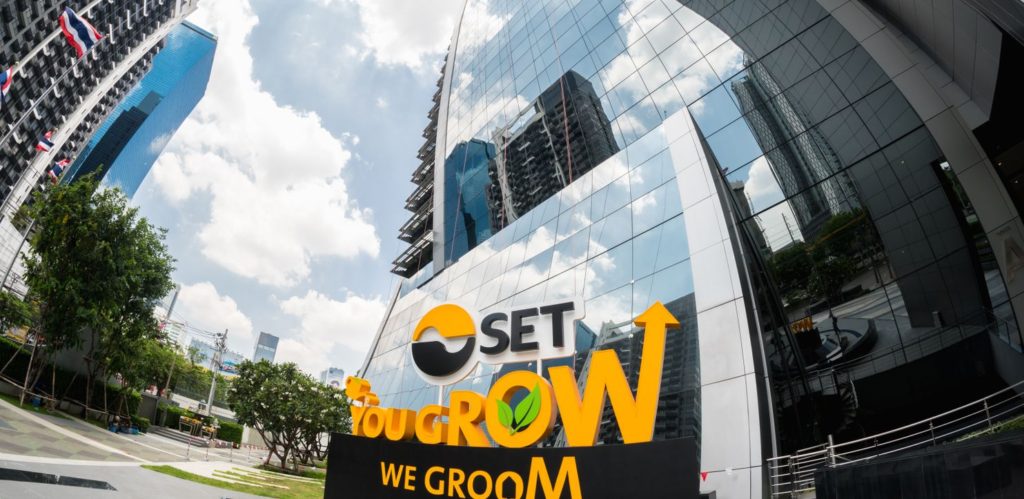Surveys have illustrated that consumers tend to lean towards spendthrift behaviours in the summer months. After all, with rampant sales and impending back-to-school buys, masses are encouraged to spend. However, studies have also prompted major concern about customer attitudes towards frivolous purchasing, highlighting the dangers associated with fast fashion. Here’s what you need to know in a nutshell.
What is fast fashion?
The concept of fast fashion draws from demand. Low-cost retailers who supply clothing and textiles through mass production methods amplify their operations in response to quickly evolving trends, as well as a need for varied options. The reality of this cycle allows for buyers to get their hands on the latest looks throughout the year, as opposed to relying on the conventional fashion seasons – think pre-fall as opposed to fall/winter collections.
The worldwide industry has grown by 21% since 2016 and is slated to expand further through the popularity of online presence over a physical one. Retailers such as the UK’s Boohoo and China’s Shein, known in part for their sustainable fashion faux pas, feature business models that operate via web platforms and act as either wholesalers or manufacturing outsourcers.
Social factors have been blamed for the immense growth that fast fashion has seen over the recent years. Luxury and high-end names have been called out for their catering to a minority population. The initial intrigue for fast fashion was that it was far more democratic and approachable in its position, even taking the extra step towards size-inclusivity.
The need for retailers to regularly aggregate performance is a driving force for turnover and is, subsequently, fueling the fast fashion movement.
Why does this provoke concern?
The clothing and textile industry, in its magnitude and scale of operations, has been cited as causing up to 10% of the world’s total greenhouse gas emissions per annum, as well as generating 20% of total waste annually. The confusing supply chains and resource-intensive activity involved in the sector are often held accountable for this.
Fast fashion augments the negative components of retail provision and have been stated to have a detrimental ecological impact on resource exploitation along with engaging in poor labour facilities to keep costs inexpensive – cotton farms have seen elevated instances of cancers amongst labourers whilst the global garment manufacturing industry has been called out by the International Labour Organization for employing 152 million child labourers and 24.9 million victims of forced labour.
Overproduction permits overconsumption. Oversaturation of the retail segment domestically and internationally further increases the presence of cheap textiles that can be easily and economically disposed of and end up in our presently overpopulated landfills. The unsold and the disposed conflict with global trends of sustainability – burning fabrics that are chemically treated or synthetic releases several toxins into the atmosphere and poisons into drinking water sources.
Apparel production has immense economic, social, and environmental ramifications. Garment dumping in developing countries decimates domestic industry through aggressive pricing, while globally the cost of clothing disposal is over $400 billion. Fast fashion has grown synonymous with forced and child labour in nations where regulations are lax, while worker wages remain unfeasible to the extent that profits are prioritized over welfare. The ecology of fast fashion is at risk at several stages of the supply chain. From textile farming that endangers with the use of pesticides and immense utilization of water, to microfibers entering our oceans through the washing of synthetic materials, the allure of linear fast fashion is gradually being eclipsed by its gloom.
The cross-disciplinary nature of the fast fashion supply chain renders broader effects, as it conceptually conflicts with the UN Sustainable Development Goals – like decent work and economic growth – as well as fashion ethics and principles. As a vital industry that is one of the largest employers in the world, fast fashion is being met with debate on the urgency of sustainability incorporation into its supply chain.

What is the response to these findings?
The United Kingdom has been accused of being the ultimate perpetrator, and Members of Parliament are beginning to take action against these activities. The Environmental Audit Committee has put forth a total of 18 recommendations for the government with respect to amending labour and eco-practices linked to fast fashion. These included a per unit tax on producers to fund recycling, abolishing the disposal of unsold goods, and the setting of environmental targets for chief fashion retailers. While the government has rejected this proposal, it certainly does not mimic public sentiment. Consumer awareness is pushing existing retailers to act more sustainably.
H&M, one of the world’s biggest fast fashion brands, identified a loss in its millennial clientele base and attributed some portion of it to sustainability consciousness. Along with holding itself to the standard of its sustainability targets, from ethical labour to its in-store recycling facilities, the company has gone on to offer a ‘Conscious’ collection which is uses plant-based fabrics in its designs. Several other brands have jumped aboard the bandwagon, and have adopted initiatives like fair trade partnerships, zero-waste goals, and community upliftment.
Activist groups, such as Fashion Revolution, work to enforce transparency between retailers and its consumers. Greenpeace’s Detox Catwalk campaign acts as a watchdog, assessing and addressing retailers on whether they’re keeping to their green promises and not, and rightfully keeping the average customer informer on whether their fashion choices are helping or harming.
Appreciation for boutiques and alternative apparel provides is gradually gaining traction, as the responsibility, individuality, and quality of these retail products are growing more and more popular as a reaction to the ills of fast fashion.

How do we combat this?
All stakeholders involved have the unique ability to become instrumental changemakers. Consumers are at the heart of this change, with responsible buying patterns being critical. Yet, producers and monitoring groups are instrumental in fostering the industrial environment for this change.
Producers & Retailers
Fundamental changes in perspective are in the hands of producers and retailers. Transforming the fast fashion industry merits a greater focus on research and development, along with dedication towards transparent internal and external workings. Revolutionizing conventional manufactured fabrics in favour of a sustainable mix supports the environment and low-skilled labour. Embracing a circular economy needs the introduction of novel offerings, such as in-house facilities to recycle or donate used clothing, to better manage post-consumer garments at scale. Viable wage systems and labour empowerment are critical factors that need to be acknowledged with the inputs of industry stakeholders. The bottom-line points towards collaboration of agents at this level to come together and assert a common sustainability agenda for responsible fast fashion.
Supervisory Entities
From the government to sustainability advocate groups, constraints must be placed to ensure accountability and visibility of retail practices. Creating awareness through indexes, like the Fashion Transparency Index, succeed in keeping consumers informed while ensuring brands are liable for their actions. Lobbying for safer practices is a route several activist organisations take to highlight areas in which improvement can occur and how. These measures have been shown to be most effective, as the European Parliament, too, has involved itself in the fast fashion conversation to place restrictions on textile waste quantities.
The length of the fast fashion supply chain is a substantial reason why the effects of the phenomenon has proved complex and wide; however, it can also be leveraged to create and sustain positive change at every stage. The fragility of our existing environment implores swift action to curb this worrying disruption, the answer to this lies equal parts in our patience and our dynamism.


